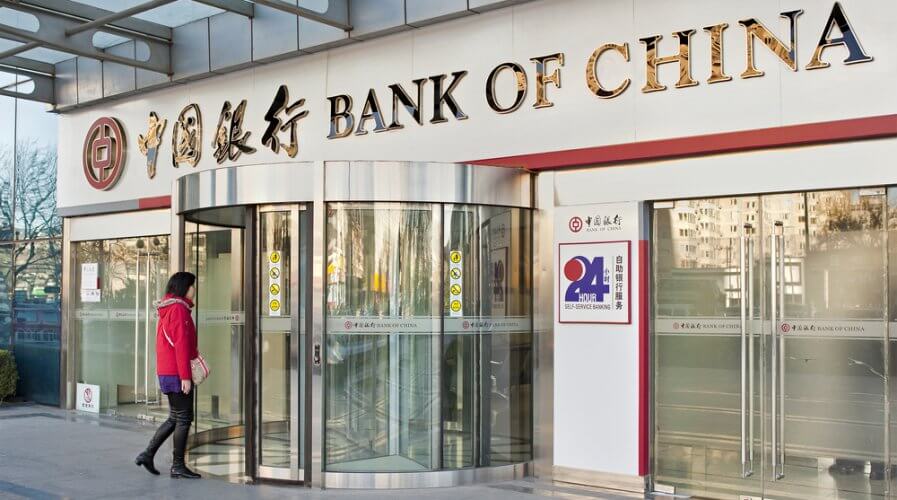
Will China’s digital Yuan leave the rest of the world in the dust? Source: Shutterstock
Bank of China pioneers open platforms and mutually beneficial ecosystems
BANKERS in China face tight scrutiny because regulators are proactive and keen to protect customers from financial losses and maintain the integrity of the financial system.
Fortunately, bankers in the country don’t see it as a hinderance — they believe those regulations help them think outside the box while still maintaining compliance as a priority item on the agenda.
At the recent Tencent Global Digital Ecosystem Summit, Bank of China CIO Liu Qiuwan highlighted a few the company’s achievements and shed light on what banks need to think about when it comes to digitally transforming themselves.
Qiuwan’s message, albeit aimed at bankers in China, are widely applicable to bankers and organizations everywhere.
Bank of China has always been progressive and focused on supporting customers to help them grow their business and meet personal goals.
Recognizing the strong demand, the company launched its digital development program last year and received an overwhelming response.
In fact, Bank of China now boasts of 145 million mobile phone banking customers (as of late last year) and claims that its mobile app’s international version is used in 18 countries right now.
That’s quite a feat when you think of the scale that the app needed to achieve and the digital infrastructure that would be required to support the fast-growing uptake among customers.
In Hong Kong, Bank of China uses blockchain for almost all of its real-estate appraisals. Used to calculate monthly mortgage payments, the technology makes it easier and more seamless.
“In the past, banks and [real estate] appraisers had to exchange faxes and emails to produce and deliver physical certificates. Now the process can be done on blockchain in seconds,” Bank of China Hong Kong’s General Manager of IT Rocky Cheng Chung-Ngam told the South China Morning Post recently.
Technology is driving a shift towards ecosystems
As organizations move to the cloud and banks battle legacy infrastructure to optimize their core for smarter and more intelligent technologies, there’s a natural shift towards a more collaborative ecosystem.
“With the advancement of digitalization, the internet-based ecosystem has gradually developed into a digital ecosystem,” said Tencent President Martin Lau at the Summit. The company has therefore decided to become more open and join hands its B2B and B2C partners to provide the most optimal solutions for industrial upgrades.
In the case of banks, progress is definitely being made towards smarter and more intelligent apps and customer-facing solutions, however, the shift towards collaborations is also being facilitated by regulators.
Regulators in Australia, Singapore, and Hong Kong believe are giving a firm push to open banking and APIs as they expect it to help build collaborative ecosystems that benefit customers.
“Bank of China pioneered open platforms in the country and works platforms such as Tencent’s WeChat, Qunar, and Tuniu networks to create mutually beneficial ecosystems,” pointed out Qiuwan.
Given the success that those collaborations have brought the bank and the boost it has provided to customer experience and satisfaction metrics, it is clear that more of these are needed for the financial services industry to thrive in the digital age.
“Digital transformation is not just a transformation of technology but also of cognition and thinking,” Quaiwan highlighted at the conference, explaining that the collaborations require more than just technical ability.
A change in mindset and culture will provide bankers with the ability to really go the distance with their digital transformation agenda and support customers in ways that better integrate with their lifestyle needs and choices.
Digital transformation needs to prioritize security and compliance
“Without security and compliance, any innovation is reckless,” said Qiuwan.
The Bank of China CIO’s statement and position on innovation is clear and very insightful — not just for banks but also for companies in industries that handle customer data or need the customer’s trust.
Banks might usually come under the scanner first because they have access to critical customer data, but as other companies climb the digital maturity curve, they’re beginning to collect more customer data in order to personalize their offerings and find a new niche for themselves.
Therefore, as businesses move to build ecosystems and create innovative solutions that delight customers, they need to pay attention to security and compliance — right from the start.
At the conference, Tencent provided an important example of building ecosystems without compromising on data security.
Its popular WeChat app with over 1 billion monthly active users tends to share data with brands through mini-programs (with the user’s consent) but makes sure that the data doesn’t leave the ecosystem, which ensures security across the board.
In the future, as more platforms and companies come together to build better offerings in industries such as financial services and healthcare, security and compliance will be key to ensuring customers are protected while they enjoy the comforts that the move to more integrated solutions intends to bring.
READ MORE
- The criticality of endpoint management in cybersecurity and operations
- Ethical AI: The renewed importance of safeguarding data and customer privacy in Generative AI applications
- How Japan balances AI-driven opportunities with cybersecurity needs
- Deploying SASE: Benchmarking your approach
- Insurance everywhere all at once: the digital transformation of the APAC insurance industry








